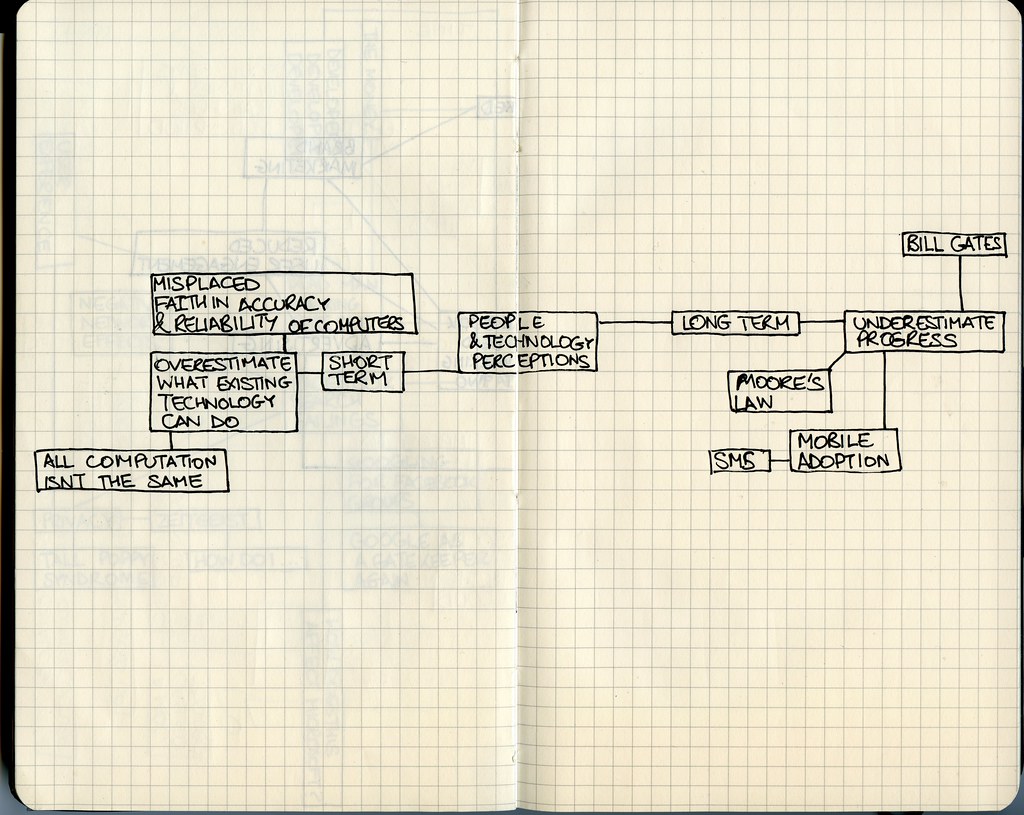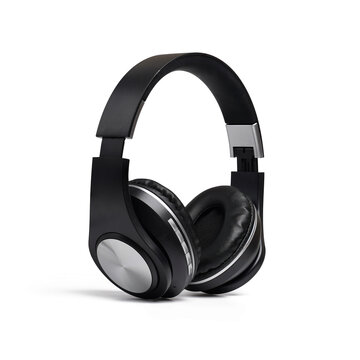Have you ever experienced listening to your favorite song on the radio and feeling like something is missing? You turn up the volume, but it’s still not enough. Your car audio system may be the culprit. While upgrading your speakers may seem like the obvious solution, have you ever considered the importance of speaker wire? In this blog post, we’ll dive into why speaker wire matters and how it can make a significant impact on your car’s audio system. So, get ready to take your music experience to the next level!
The Importance of Speaker Wire in Your Car Audio System
Speaker wire is an essential component of any car audio system. It is the conduit through which sound travels from the amplifier to the speakers, and as such, it plays a crucial role in determining the quality of sound that you hear. The quality of speaker wire can affect the clarity, detail, and overall performance of your car’s audio system. It is important to understand that not all speaker wires are created equal. Factors such as wire gauge, material, and insulation can all impact the performance of your car’s audio system. Investing in high-quality speaker wire can make a significant difference in the sound quality of your car’s audio system. It is essential to choose the right type of speaker wire for your specific needs and to ensure that it is installed correctly for optimal performance.
What You Need to Know About Car Audio Speaker Wire
Car audio speaker wire is often overlooked when it comes to upgrading your car’s sound system. However, it plays a crucial role in delivering high-quality sound to your speakers. Not all speaker wires are created equal, and choosing the right one can make a significant difference in your overall listening experience.
When selecting speaker wire for your car audio system, there are a few things you need to consider. One important factor is the gauge of the wire. The lower the gauge number, the thicker the wire and the less resistance it has, which means better signal transmission and clearer sound.
Another consideration is whether to go with copper or silver wire. Copper is more commonly used due to its affordability, durability and conductivity properties; however, silver offers even better conductivity but at a higher cost.
It’s also essential to pay attention to cable length and insulation quality as well as connectors’ compatibility with your devices.
By understanding these key factors when shopping around for new speaker wires, you’ll be able to make an informed decision that will significantly improve your car audio system’s performance without breaking the bank.
Upgrading Your Car Audio: How Good Speaker Wire Can Make a Difference
When it comes to upgrading your car audio system, speaker wire quality is a crucial factor that should not be overlooked. Many car owners don’t realize the impact that speaker wires have on the overall sound quality of their car’s audio system.
Investing in high-quality car audio speaker wire can make a noticeable difference in your listening experience. Good quality wires are made of thicker conductors which allow for better signal transfer and minimize interference or distortion. This means you get clearer sound with less background noise.
Ensure that you choose the right gauge size of speaker wire for your specific setup, as using an incorrect gauge size could lead to power loss and affect your sound performance.
Overall, upgrading to high-quality speaker wire can significantly improve the clarity, detail and overall richness of your music playback – letting you enjoy every beat and note without any disruptions or distractions.
Understanding the Role of Speaker Wire in High-Quality Sound Systems
How Speaker Wire Affects Sound Quality: The Science Behind It
Speaker wire plays a crucial role in delivering high-quality sound in your car audio system. The wire’s thickness, length, and material all affect the signal’s transmission from the amplifier to the speakers. Thicker wires with lower resistance allow for more power to flow through, resulting in louder and clearer sound. The length of the wire also affects the signal’s strength, with longer wires leading to weaker signals. Copper is the most common material used for speaker wire due to its low resistance and affordability. Choosing the right speaker wire can make a significant difference in your car’s sound quality, so it’s important to consider these factors when upgrading your system.
Choosing the Right Speaker Wire for Your Car Audio System
When it comes to choosing the right speaker wire for your car audio system, there are a few things you need to consider. First and foremost, make sure that the wire gauge is appropriate for your system’s power output. In general, thicker wires will allow more power to flow through them without overheating or degrading the sound quality.
Secondly, consider the quality of materials used in the wire’s construction. Copper and silver are both excellent conductors of electricity, but copper is more affordable while silver offers slightly better performance. Look for high-quality insulation as well since this can help prevent interference and maintain signal clarity.
Ultimately, selecting a good speaker wire can significantly enhance your car’s sound quality by reducing distortion and providing cleaner audio signals.
Tips for Installing and Maintaining Your Speaker Wire
When installing your car audio speaker wire, it’s essential to ensure that the connections are secure and tight. Loose connections can lead to a poor sound quality and even damage your audio system. To avoid this issue, you should use proper connectors such as crimping or soldering to seal the wires tightly.
It’s also important to keep an eye on any wear and tear of the wiring over time. Exposure to extreme temperatures, moisture and vibrations can cause damage that will affect sound performance. Regularly check for signs of fraying or corrosion on the wire ends and replace them accordingly.
By following these simple guidelines for installing and maintaining your speaker wire, you can be sure that your car audio system is performing at its best with no interruptions in audio quality due to faulty wiring.
Why Choosing the Right Speaker Wire is Crucial for Your Car’s Sound Quality
Choosing the right speaker wire is crucial for your car’s sound quality, and it all comes down to resistance. When an audio signal is sent through a speaker wire, some of that energy is lost as heat due to the resistance of the wire. Therefore, minimizing resistance in your speaker wires can have a big impact on the overall sound quality of your system.
Thicker wires typically have less resistance than thinner ones and are therefore better suited for higher-powered systems. It’s important to choose wires with appropriate gauge thickness based on how much power your system requires. Additionally, paying attention to factors such as shielding and insulation can further improve transmission efficiency while minimizing interference.
Ultimately, investing in high-quality speaker wire might seem like a small detail compared to buying top-of-the-line speakers or amplifiers – but doing so can make a noticeable difference in overall sound quality when everything is working together correctly.
The Science Behind Picking the Perfect Car Audio Speaker Wires
Choosing the right speaker wire for your car audio system can be a daunting task, but understanding the science behind it can make the process easier. The most important factor to consider is the wire’s gauge, which refers to its thickness. Thicker wires have less resistance and can carry more power, resulting in better sound quality. However, thicker wires can also be more difficult to install and may not fit in tight spaces.
Another key consideration is the wire’s material. Copper is the most common material used for speaker wires due to its high conductivity, but it can also be expensive. Aluminum is a cheaper alternative, but it has higher resistance and may not provide the same level of sound quality.
It’s also important to pay attention to the wire’s insulation and shielding. Insulation protects the wire from damage and interference, while shielding prevents outside interference from affecting the sound quality.
When selecting speaker wires for your car audio system, it’s essential to choose wires that are compatible with your amplifier and speakers. Consult with an expert or refer to your equipment’s manual for guidance on selecting the appropriate gauge and material for optimal performance.
A Comprehensive Guide to Buying and Installing New Car Audio Cables
When it comes to buying and installing new car audio cables, there are a few key things to keep in mind. First and foremost, make sure you choose the right gauge. The gauge refers to the thickness of the wire, with lower numbers indicating thicker wires. Thicker wires can handle more power and offer better sound quality, so consider your system’s power output when selecting a gauge.
Next, look for high-quality materials. Copper is the most common material used for speaker wire due to its conductivity, but there are different grades of copper wire available. Oxygen-free copper (OFC) is a popular choice as it is highly conductive and resistant to corrosion.
Finally, consider the length of the wire you need. It’s always better to have too much wire than not enough, as cutting and splicing wires can affect sound quality. If you do need to splice wires together, make sure you use connectors specifically designed for car audio systems.
By taking these factors into account when buying and installing new car audio cables, you can ensure that your system sounds its best and delivers high-quality sound every time you hit the road.
Top Tips for Improving Your In-Car Entertainment with Premium Wiring
The Importance of Quality Speaker Wire for Your Car Audio System
Getting the right car audio speaker wire can make a significant difference in your overall driving experience. Upgrading to premium quality wiring will enhance sound clarity, increase power transfer efficiency and help reduce noise interference. When selecting new cables, pay attention to their construction as it can greatly impact the performance of your sound system. Opt for thicker wires with lower resistance levels that are made from high-quality materials such as copper and silver. Properly installed high-performance speaker cables also improve safety by reducing heat build-up while keeping impedance consistent throughout the entire circuit. So invest in good quality speaker wires for an unparalleled listening experience on-the-go!
How to Choose the Right Speaker Wire for Your Car Audio System
When choosing speaker wire for your car audio system, it’s important to consider the wire gauge and material. Thicker wires have less resistance and can deliver more power to your speakers, resulting in better sound quality. Look for copper or oxygen-free copper (OFC) wiring as they are good conductors of electricity. Additionally, pay attention to the length of wire you need and make sure to measure carefully before purchase. It’s always better to have a little extra than not enough. For optimal performance, choose high-quality wiring with shielding that protects against interference from other electronic devices in your car.
The Benefits of Upgrading Your Car Audio System with Premium Wiring
By upgrading your car audio system with premium wiring, you can experience a significant boost in sound quality. High-quality speaker wire reduces resistance and allows for more efficient power transfer, resulting in clearer and crisper sound. Additionally, premium wiring can minimize signal loss and interference, which is especially important when dealing with high frequencies that are crucial for music quality. With better wiring, you may also notice improved bass response and overall volume capabilities of your speakers. Upgrading to premium speaker wire may seem like a small change, but it can make a big impact on the overall performance of your car’s sound system.
Tips for Installing Speaker Wire in Your Car Audio System
When installing speaker wire in your car audio system, proper insulation and correct gauge size are crucial. Use a wire with a gauge size that can handle the power output of your amplifier to prevent damage or distortion. Additionally, ensure that you choose an insulated wire that will protect against any interference or electrical noise that may degrade the sound quality. When routing the wires, avoid running them near power lines or other sources of electromagnetic interference as this can also affect the signal transmission. Proper installation will not only improve overall sound quality but also prolong the lifespan of your equipment.
Making Sense of Different Types of Speaker Wires and Their Benefits
Different types of speaker wires
There are various types of car audio speaker wires available in the market. Some of the commonly used wires include copper-clad aluminum (CCA) and oxygen-free copper (OFC) wire, among others.
CCA is a cost-effective option that consists of an aluminum core coated with copper. While it is cheaper, it has a higher resistance than OFC wire which can affect sound quality if longer cables are needed.
On the other hand, OFC wire contains pure copper which offers excellent conductivity and low resistance resulting in better sound quality for your car’s audio system. It is also more durable and resistant to corrosion compared to CCA wire making it ideal for long-term use.
Another important factor to consider when choosing speaker wires for your car’s sound system is gauge size. Thicker gauge sizes offer less resistance hence better performance though they may cost more.
It’s crucial to understand different wiring options before purchasing one suitable for your unique needs as this could make or break how well you maximize your listening experience while on the road!
Expert Advice on Finding the Best Performance-Boosting Wires for Your Vehicle
When upgrading your car’s audio system, finding the right speaker wire is crucial for achieving top-quality sound. The performance of your speakers highly depends on the quality of wiring you use, and choosing the wrong type or gauge can significantly impact your listening experience.
Experts suggest that when selecting a speaker wire, consider factors such as length, thickness, material composition, and insulation. Speaker wires are usually made from copper or aluminum materials and come in different gauges ranging from 12 to 18 AWG. However, it’s important to note that a lower number means thicker wire.
For optimal sound output and minimal distortion levels, investing in high-quality copper wires with adequate thickness is recommended. These higher-end cables may be pricier but offer better resistance to corrosion and electrical interference compared to cheaper alternatives.
To maximize the benefits of premium wiring upgrades for your vehicle’s audio system, ensure proper installation techniques are followed for each component connection point. Seek expert advice if needed to prevent costly mistakes that could ruin your investment.
Overall, investing in quality speaker wire isn’t an option; it’s essential if you want exceptional sound quality while cruising down the road with music blasting through your vehicle’s audio system!
In conclusion, upgrading your car audio system with high-quality speaker wire can make a significant difference in the sound quality of your vehicle. Understanding the science behind picking the perfect car audio speaker wires and choosing the right type of wire is crucial for achieving optimal sound performance. By following our comprehensive guide to buying and installing new car audio cables, you can improve your in-car entertainment with premium wiring and enjoy a better listening experience on the road. Don’t forget to check out our other content for more expert advice on technology and other related topics. Upgrade your car audio system today and take your driving experience to the next level!
Frequently Asked Questions
Who needs car audio speaker wire?
Anyone who wants to replace or upgrade their car’s audio system.
What gauge should car audio speaker wire be?
It depends on the power output of your amplifier. Consult an expert.
How do I know which wire is positive or negative?
Look for markings or color coding on the wire. Red is usually positive.
Who installs car audio speaker wire?
Car audio professionals or experienced DIYers can install speaker wire.
What is the difference between copper and aluminum wire?
Copper wire is a better conductor and is more durable than aluminum wire.
Won’t any wire do for car audio speakers?
No, using the wrong gauge or low-quality wire can damage your audio system.






